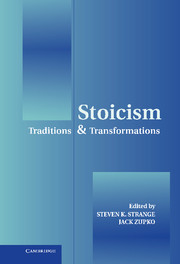17 results
1 - The Philosopher as Arts Master
-
-
- Book:
- Interpreting Buridan
- Published online:
- 01 February 2024
- Print publication:
- 08 February 2024, pp 7-21
-
- Chapter
-
- You have access
- HTML
- Export citation
John Buridan, “Quaestiones super octo libros Physicorum Aristotelis (secundum ultimam lecturam): Libri III–IV.” Michiel Streijger and Paul J. J. M. Bakker, eds. Guide to text by Edith D. Sylla. History of Science and Medicine 55; Medieval and Early Modern Philosophy and Science 27. Leiden: Brill, 2016. ccxviii + 360 pp. $166.
-
- Journal:
- Renaissance Quarterly / Volume 71 / Issue 1 / Spring 2018
- Published online by Cambridge University Press:
- 20 November 2018, pp. 264-265
- Print publication:
- Spring 2018
-
- Article
- Export citation
Contributors
-
-
- Book:
- The Cambridge Dictionary of Philosophy
- Published online:
- 05 August 2015
- Print publication:
- 27 April 2015, pp ix-xxx
-
- Chapter
- Export citation
Notes on contributors
-
-
- Book:
- The Reception of Aristotle's Ethics
- Published online:
- 05 February 2013
- Print publication:
- 13 December 2012, pp vii-viii
-
- Chapter
- Export citation
Chapter 8 - Using Seneca to read Aristotle
-
-
- Book:
- The Reception of Aristotle's Ethics
- Published online:
- 05 February 2013
- Print publication:
- 13 December 2012, pp 155-170
-
- Chapter
- Export citation
Chapter 8 - Using Seneca to read Aristotle
-
-
- Book:
- The Reception of Aristotle's Ethics
- Published online:
- 05 February 2013
- Print publication:
- 13 December 2012, pp 155-170
-
- Chapter
- Export citation
Introduction
-
-
- Book:
- Stoicism
- Published online:
- 11 July 2009
- Print publication:
- 21 June 2004, pp 1-9
-
- Chapter
- Export citation
Subject Index
-
- Book:
- Stoicism
- Published online:
- 11 July 2009
- Print publication:
- 21 June 2004, pp 293-295
-
- Chapter
- Export citation
List of Abbreviations
-
- Book:
- Stoicism
- Published online:
- 11 July 2009
- Print publication:
- 21 June 2004, pp xi-xii
-
- Chapter
- Export citation
List of Contributors
-
- Book:
- Stoicism
- Published online:
- 11 July 2009
- Print publication:
- 21 June 2004, pp vii-viii
-
- Chapter
- Export citation

Stoicism
- Traditions and Transformations
-
- Published online:
- 11 July 2009
- Print publication:
- 21 June 2004
Stoicism
-
- Book:
- Stoicism
- Published online:
- 11 July 2009
- Print publication:
- 21 June 2004, pp xiii-xiv
-
- Chapter
- Export citation
Frontmatter
-
- Book:
- Stoicism
- Published online:
- 11 July 2009
- Print publication:
- 21 June 2004, pp i-iv
-
- Chapter
- Export citation
Contents
-
- Book:
- Stoicism
- Published online:
- 11 July 2009
- Print publication:
- 21 June 2004, pp v-vi
-
- Chapter
- Export citation
Acknowledgments
-
- Book:
- Stoicism
- Published online:
- 11 July 2009
- Print publication:
- 21 June 2004, pp ix-x
-
- Chapter
- Export citation
Name Index
-
- Book:
- Stoicism
- Published online:
- 11 July 2009
- Print publication:
- 21 June 2004, pp 291-292
-
- Chapter
- Export citation
Works Cited
-
- Book:
- Stoicism
- Published online:
- 11 July 2009
- Print publication:
- 21 June 2004, pp 277-290
-
- Chapter
- Export citation



